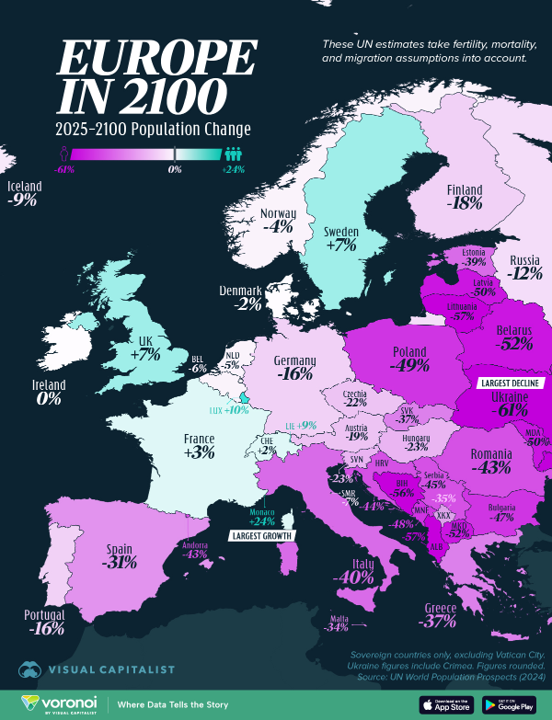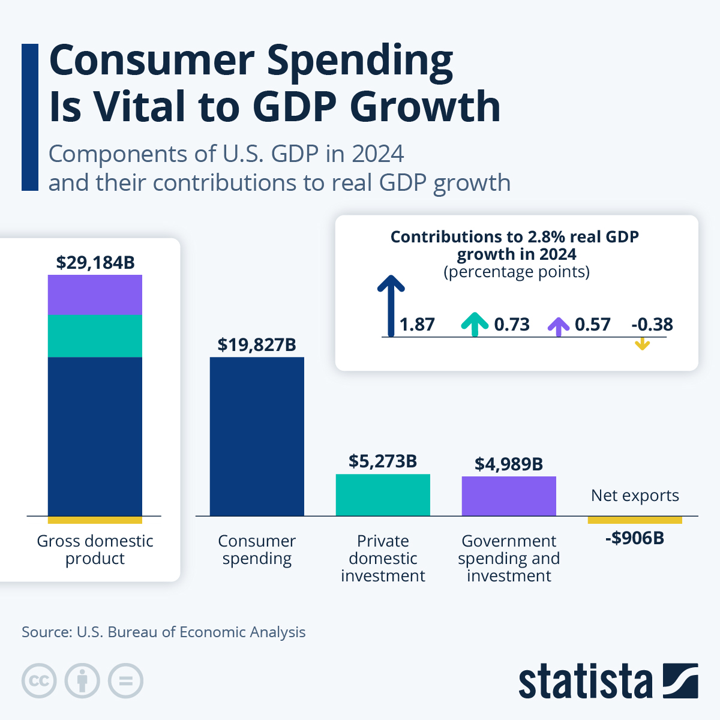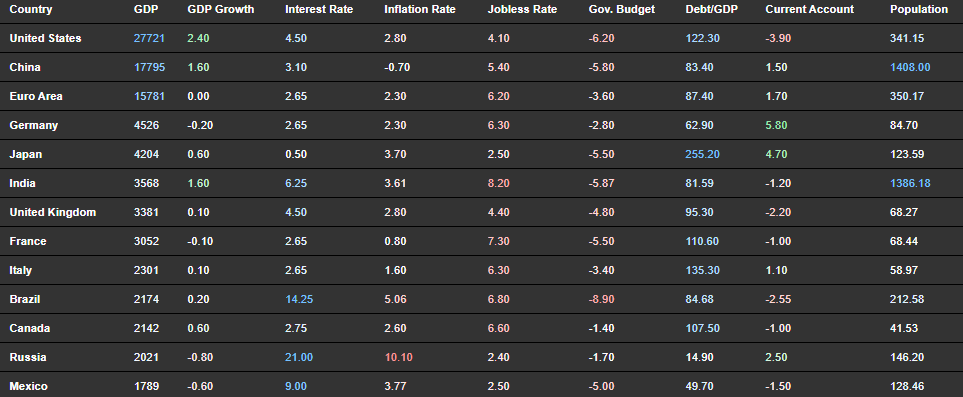Home > Edgenie Sunday Schroll: Newsletter > "Don’t Let AI Do All Your Revision — Real Results Need Real Work 👀✍️"
Jump to Section:
Don’t Let AI Do All Your Revision — Real Results Need Real Work 👀✍️
Low-paid workers to bear the brunt of coming rise in UK labour costs
Summary
A Level Economics Questions:
Possible A Level Economics 25 Marker Question
Infographic of the Week

Europe’s Quiet Demographic Crisis: A Population Tumble by 2100
By 2100, Europe is projected to face a steep population decline, with countries in Eastern and Southern Europe hit hardest. According to UN estimates, Ukraine could lose up to 61% of its population, while only eight European countries are expected to experience growth, largely due to immigration. Low birth rates, ageing populations, and outward migration are key drivers, with many from post-Soviet states moving west in search of better opportunities. While immigration could help stabilise populations in Western Europe, rising anti-immigrant sentiment poses challenges. Without demographic or technological shifts, shrinking workforces may strain public finances, depress demand, and threaten Europe’s high living standards.
Chart of the Week

The Power of the Purse: Consumer Spending Drives U.S. Growth
Consumer spending continues to play a crucial role in supporting U.S. GDP growth, accounting for 67% of total growth in 2024. Despite faster growth rates in private investment and government spending, their smaller overall share meant they contributed less to the 2.8% GDP increase. In 2024, Americans spent $19.8 trillion, with around 70% on services and 30% on goods. While retail sales showed only a slight rebound early in 2025, it was enough to ease fears of a recession, as personal consumption remains the backbone of the economy. Net exports, however, dragged on growth due to a widening trade deficit.
Macroeconomic Data



